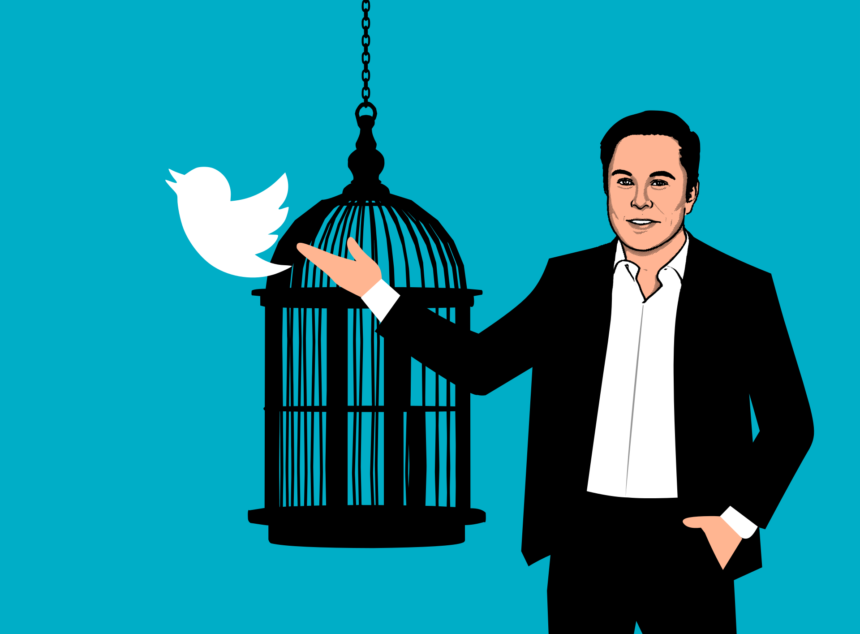I don’t tweet. I probably never will. As a former English professor, I am too steeped in the idea that you must provide well-reasoned support for your assertions—not just blurt them out rapid-fire with as many typos as you can manage.
Despite my lack of interest in the venue, however, I have noticed the recent uproar surrounding Elon Musk’s takeover of Twitter. The left is furious because it appears that Musk will disallow the censorship of which they had grown so fond. No more can they rest easy in the knowledge that their poorly formed ideas and false narratives will be unequivocally protected from dissidents by thought-police algorithms and official banishments.
Meanwhile, the right, being the hand most often slapped by the corporate dictatorship that was Twitter, is eating its popcorn now and watching with glee the recent turn of events in Dystopia. It is cheering Musk on and preparing all its pent-up one-liners for the new free-speech-friendly virtual world.
I admit there is satisfaction in seeing the smug enraged, but that is a base, sectarian satisfaction, which probably misses the forest for the trees. Free speech is a double-edged axe, as is censorship. Unbridled free speech is an open marketplace for ideas, not all of which are good for people and some of which are downright dangerous for both body and soul. Sure, you can say, as the free-market economists do about corporations, that the bad will be defeated by their betters in the free market of discourse, but this is naïve. In a very truly well-educated society, the best ideas may prevail, for the citizens of that land have the tools to evaluate arguments on their merits. But we do not live in a well-educated society, not by a long shot, and the peddlers of bad ideas are often expert propagandists. They need not defeat their opponents (those with good ideas) in open debate—indeed, they are incapable of winning on those grounds. They need only control positions of power: in the media, including social media and entertainment, in education, medicine, agriculture, politics, and so on.
With a poorly educated, highly indoctrinated society such as we have, it is not the better ideas that will prevail in a free-speech environment; it is the more pervasive propaganda. Admittedly, censorship offers no better an alternative. As we have seen with Twitter and other big-tech entities during the so-called pandemic and 2020 elections, censorship is executed by the powerful, not the wise.
In the hands of a wise parent, however, censorship of what comes into the home and into the minds of the children is not just a useful tool; it is essential for the family’s health—mental, physical, and spiritual alike. So too with a wise government, with wise teachers, with wise editors of media outlets, with a wise religious authority—all potentially disseminators of truth and protectors of persons. In their hands, strict limitations on the flow of harmful ideas into society can only serve to limit the damage and carnage on a fallen, and therefore vulnerable, race.
The problem, of course, is that we do not have many wise people in government, in education, in media, or in religious authority at present, and, in fact, a great many of them are actively engaged in the destruction of the moral and political orders. Therefore, the censorship they impose is exactly the wrong kind: they cancel truth rather than lies.
Which brings us back to Twitter: a dictatorially leftist organization controlling the lion’s share of bellicose one-liner communications. Not only does the platform itself inhibit real debate, but its owners could not resist flexing the muscle of their market domination, and they started openly banning users who did not align with their weak-minded politics. To focus on their acts of censorship, though, and to cheer Musk’s alleged intention of bringing free speech back to the playing field is to miss the point of the problem.
The real offense of Twitter is not censorship. It never was a kindly, public-service endeavor meant beneficently to allow folks everywhere to speak their minds and be heard. It was about money and political power, and the owners of political power do not typically give equal time to their opponents—not in their own backyard. And if you think about it, why should they?
The trouble with Twitter is not censorship but false advertising, a bait-and-switch scam. “Come on in, everyone! The water is fine, and the speech is free. You can make a splash and spar with anyone about anything you like.” There is the appearance of no vested interest behind the offering.
That Elon Musk just paid $44 billion dollars for it should shatter that illusion.
—Michael Larson
Top image by Mohamed Hassan, Pixabay

Leave a Reply